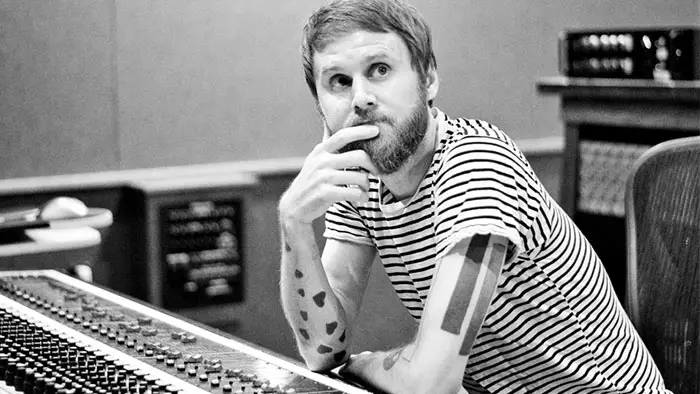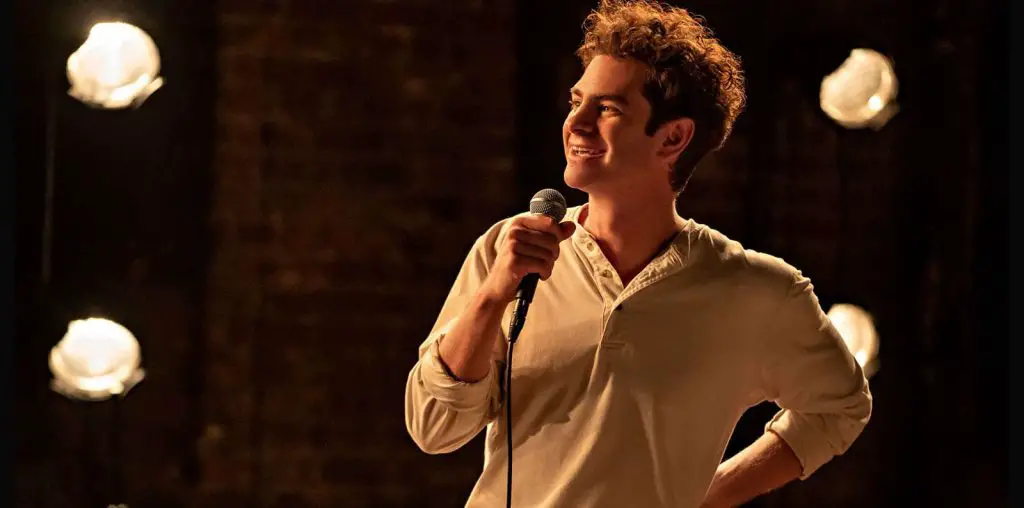
It reminds me of John Williams. He creates themes for his characters.
You know the John Williams style of writing a theme is melody-driven themes. You’ve got like a specific melody indicator for these that move around through the different instrumentation. I feel like that’s one way to do it. But there are other ways where it can be the theme, be it a specific set of instrumentation or a certain sound that always accompanies the character. Not every character necessarily needs a melody. I treat the sound with an equal amount of importance along with the melody.
I’m not writing concert music. I’m writing film music. It’s meant to coexist with all the other elements that are already on screen. So sometimes, a little goes a long way in that regard, and you get a sound that just kind of embodies the feelings associated with this moment or this character, then it doesn’t need to really dance around.
Let me ask you this. There’s a moment with a woman. She’s gutting a fish, and the one thing I noticed about that is there is no score or music during that entire segment.
Yeah, that’s one of the few battles I had with the team because I wanted to take music out of that moment. We had a movie with about 88 minutes of music. There was music over everything, which isn’t uncommon. I come onto a lot of projects where they’ve already done some kind of temporary pass on the music. I’m usually trying to find the spots where we can pull it out and then try to convince the directors this was the best decision while keeping a consistent feel for things overall.
I think you’ll find that this scene can just stand alone. They didn’t really need music there. So that was a scene where it just started to feel fatigued a little bit from hearing so much music. Plus, there’s just something about the subject, Mandy, and her world and the way she speaks. There was just something about the way she spoke and the way the room sounded, the way they recorded it, and the way she described being in nature with the calmness and all that. It just felt like the right spot to pull the music out. And then, during the mix, I won a battle to pull it out. And I think everybody’s happier without anything there.

“…trying to find the balance between understanding what they’re going for, while not being too influenced by that either.”
Let me ask you a little bit about the process. How often do you run over a scene, and are you sitting there with a keyboard or a guitar?
Yeah. I don’t know how others do it, but I tend to change the process based on when I become involved. I’ve had projects, like this one, where I came on very early. Similarly, with The Night House, I was hired at the script phase, so I was creating music while they were shooting, and they were sending me dailies. I was writing and reacting to just a general palette of what it looked like on the screen. Having the script early helped since I was already familiar with the script, I knew character arcs and what transpires in the story. Now, there’s the movie that you see in your head when you read a script compared to the one that actually gets shot. Now you’re just recalibrating your ideas of the movie.
What’s most common, though, is when the movie is not even on your radar long after they’ve actually shot it. They’ve been in post and already have an edit often with a temporary pass of music from other films. You sit down with this director, and they say, “we’re thinking of something like this.” We’ll look at a scene, and it’s sort of driven or something else. Here you’re really trying to find the balance between understanding what they’re going for, while not being too influenced by that either.
Again, to me, it’s just all telling stories. So it doesn’t really matter which genre—narrative, documentary, horror, comedy, or whatever. You’re just kind of trying to get inside the rhythm of the characters’ experience and just what the story is and what do you need to help reinforce. Symphonies are that way, too. They’re telling a story.
How did you get into the movie scoring world? I imagine you were just a musician beforehand.
I kind of got into it by accident. I was a freshman at the University of Georgia in Athens. Originally, I had grown up in a rural, small-town part of Georgia and never grew up playing music. I didn’t start playing music until I was a senior in high school. I just started learning punk rock songs—bar chords on a guitar and just making noise. Just trying to figure it out, cause I just really enjoyed doing it.
By the time I was halfway through my freshman year of college, I met this group of kids from the theater department. They were all talking about making this movie. The journalism kids were going to “steal” the Betamax camera out of the journalism department for the weekend. And the theater department kids were gonna “borrow” wardrobe from the wardrobe department. So it was this ambitious plan of like 15 to 20 people rallying together behind this one kid’s script he’d written, all to make this movie. Somebody suggested to them that I do the music. I did everything I could to convince them that this was a terrible idea because I didn’t know anything about scoring movies. I barely knew anything about making music at that point.
They convinced me saying that we don’t know anything about making a movie, so I don’t know why you should be afraid of scoring one. They had me there. Check and mate. And so, at 19, I jumped on board. We made the movie, and it was amazing. Over the school year, we made this movie, had a big party, and showed it to everybody. And then, you know how it goes. You hear that somebody else is making a movie and then they ask who scored your film?

